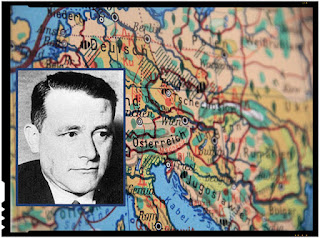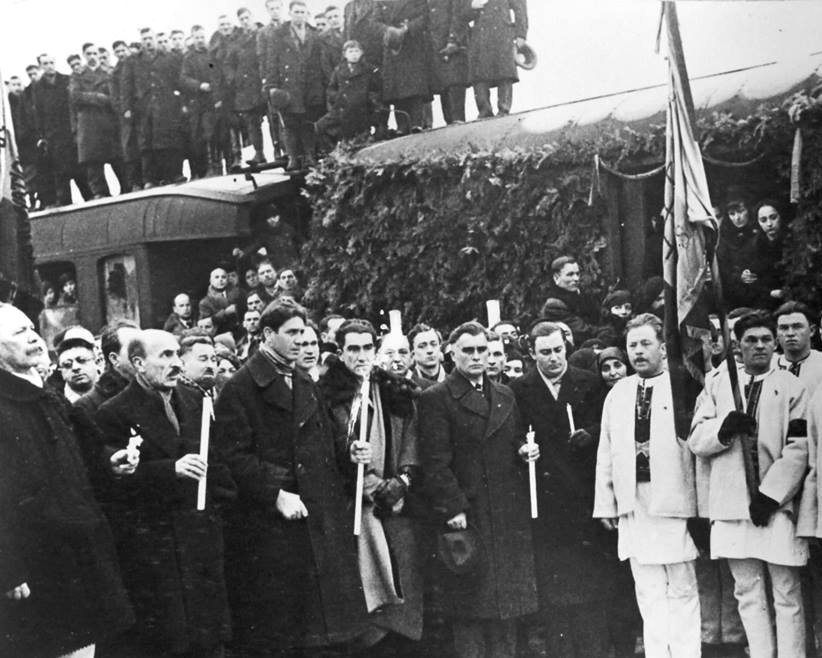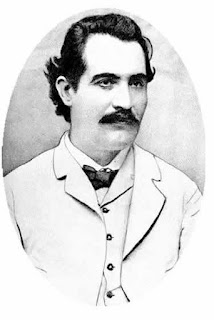Carl Schmitt's Geopolitical Writings and Romania's Future

(Romanian version of this introduction here)
Until recently, the geopolitical theories of 20th century German jurist and philosopher Carl Schmitt have been neglected. His early jurisprudential doctrine of decisionism, by which the sovereign is defined as “he who decides on the exception,” has been given plenty of attention. So has his definition of “the political” as the potentially lethal distinction between friends and enemies. Recently, however, his works on geopolitics have been recognized as equally worthy of attention.
Schmitt’s
concept of the land as the source of all true law is similar to the ideas
expressed in the conversation between the Ottoman sultan and the Wallachian
prince in Eminescu’s “Scrisoarea III.”
Like Eminescu, Schmitt often viewed bodies of water in sinister, demonic
terms. One common influence on
their ideas about war may have been Clausewitz, whom Schmitt mentions as an
influence in some of his other texts.
(Eminescu, remember, had studied in Bismarck’s Prussia.)
Schmitt’s
ideas on land and peoples are also somewhat similar to those argued in Corneliu
Zelea Codreanu’s Pentru Legionari, and the German thinker’s ideas on
land-appropriation influenced Schmitt’s acquaintance and admirer Mircea
Eliade. This is revealed clearly
in Schmitt’s The Nomos of the
Earth (1950). However,
Schmitt’s ideas about land-based nations and maritime nations developed before
1950, and can already be detected in his 1938 book The Leviathan in
the State Theory of Thomas Hobbes.
In The Nomos of the
Earth, Schmitt explains his theories about these subjects:
“In mythical language, the earth became
known as the mother of law. This
signifies a threefold root of law and justice… the earth is bound to law in three ways. She contains law within herself, as a
reward of labor; she manifests law upon herself, as fixed boundaries; and she
sustains law above herself, as a public sign of order. Law is bound to the earth and related
to the earth… The sea knows no such apparent unity of space and law, of
order and orientation… Ships that sail across the sea leave no trace… The sea has no character, in the
original sense of the word, which comes from the Greek charassein,
meaning to scratch, to engrave, to imprint. The sea is free…
Originally, before the birth of great sea powers, the axiom ‘freedom of
the sea’ meant something very simple, that the sea was a zone free for
booty. Here, the pirate could ply
his wicked trade with a clear conscience.”
In
his controversial early World War II essay Ordinea Grossraum (1939-1941),
Schmitt mentions Romania more than once and appears to defend the infamous
territorial rearrangements of 1940, but his cryptic boast in the July 1941
preliminary remark is ambiguous and may suggest implicit criticism of these land-appropriations. In the preliminary remark, Schmitt subtly
suggests that Operation Barbarossa proved him right all along (he doesn’t
explain exactly how). In any case,
that is the only contemporary published remark he ever made about the war on
the Eastern Front, a subject he disliked altogether. Like Stephen the Great, Schmitt believed that any encircled
country that wishes to be a respected power should instinctively avoid a war on
more than one front, especially in opposite directions.
Ordinea Grossraum demonstrates that Schmitt had conceived many of his ideas on
geopolitics and international law at least a decade before they would later be
expanded upon and applied to the postwar world in The Nomos of the Earth. His concept of a Grossraum (great
space) protected by a powerful nation, which he calls a Reich, was
partially influenced by the American Monroe Doctrine of the 19th century. However, Schmitt criticized the United
States for abandoning the original Monroe Doctrine in favor of a global empire
in the 20th century.
Romania
has never been a Reich in the sense
described in Ordinea Grossraum – that
is, a subject and not just an object of a geopolitical great
space. There have been many great
Romanian leaders, but only two who envisioned Romania as a Reich and not just a nation-state. Michael the Brave was the first of these leaders; Codreanu
was the second. Both were murdered
before they could achieve this goal.
Will there be a third leader with a vision of a Romanian Reich, and if so, will that leader live
long enough to make that vision a reality? Romania’s future depends on it.
Nothing
could be further from the point of producing this translation of Ordinea Grossraum than to encourage more lingering outrage over the territorial
losses of 1940. There are already
far too many experts on the historic Romanian grievances against Russia and
Hungary, and not nearly enough ideas for a non-usurious national bank, a feared
weapons industry, and other new institutions that would bring the Romanian
nation respect and self-sufficiency in a merciless world. These things, along with the spiritual
considerations, are the inner necessities of the nation and the
state. Schmitt’s writings hold the
key to the outer necessities.
(Romanian version of this introduction here. Other geopolitical writings by Schmitt here)
(Romanian version of this introduction here. Other geopolitical writings by Schmitt here)




Comments
Post a Comment